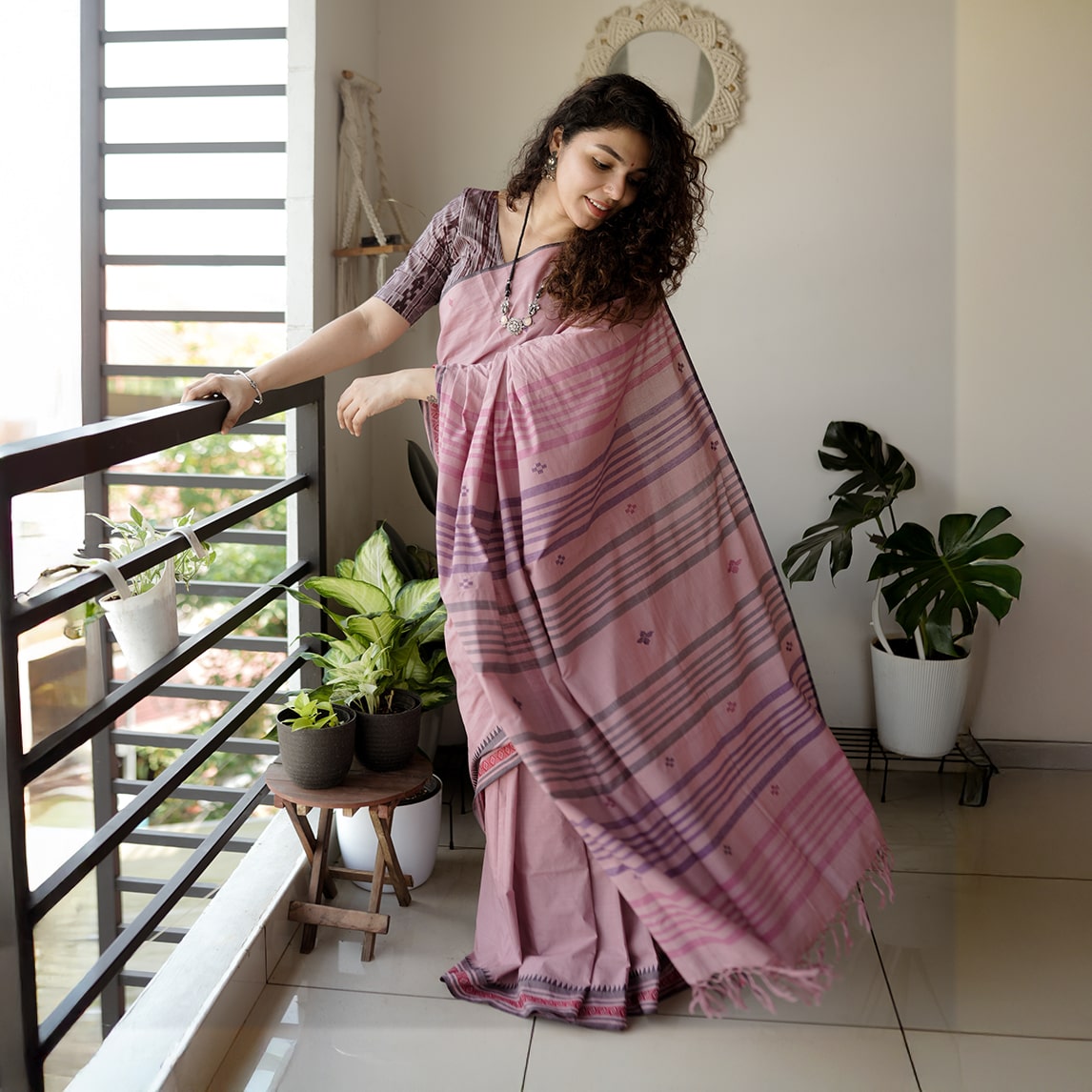Showing all 6 results
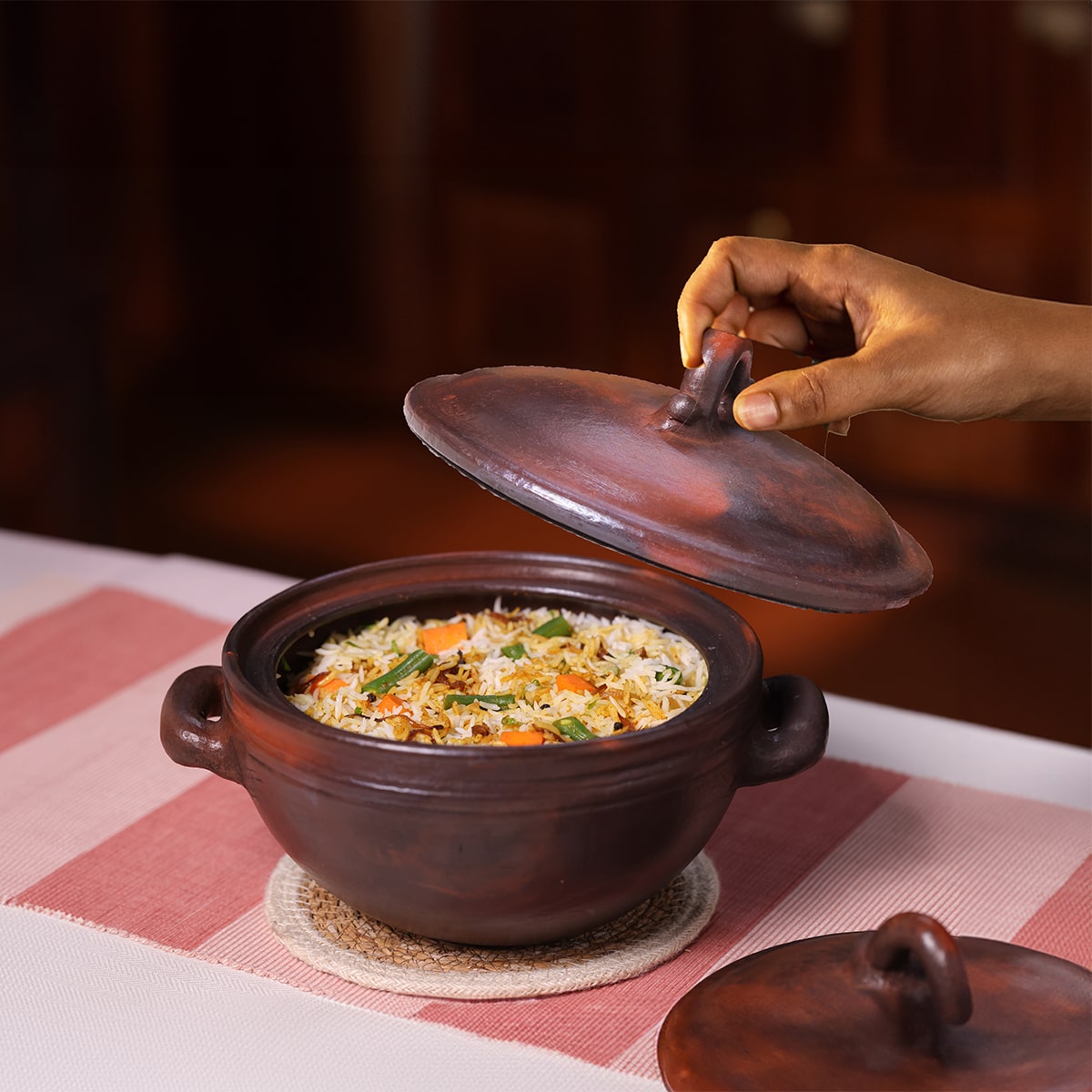
Dum Terracotta Casserole (2 litres)
$25.00
$33.00
Versatile flameware pots that will steam rice, cook your favourite biryani, simmer soup, or slow cook meats or vegetables. Cooking in clay pots add depth to every recipe. Practical to work with due to the uniquely designed handles and a fitting lid. The black tone of the product is achieved through processing in the kiln. It is a blackening process done on the natural terracotta coloured product.
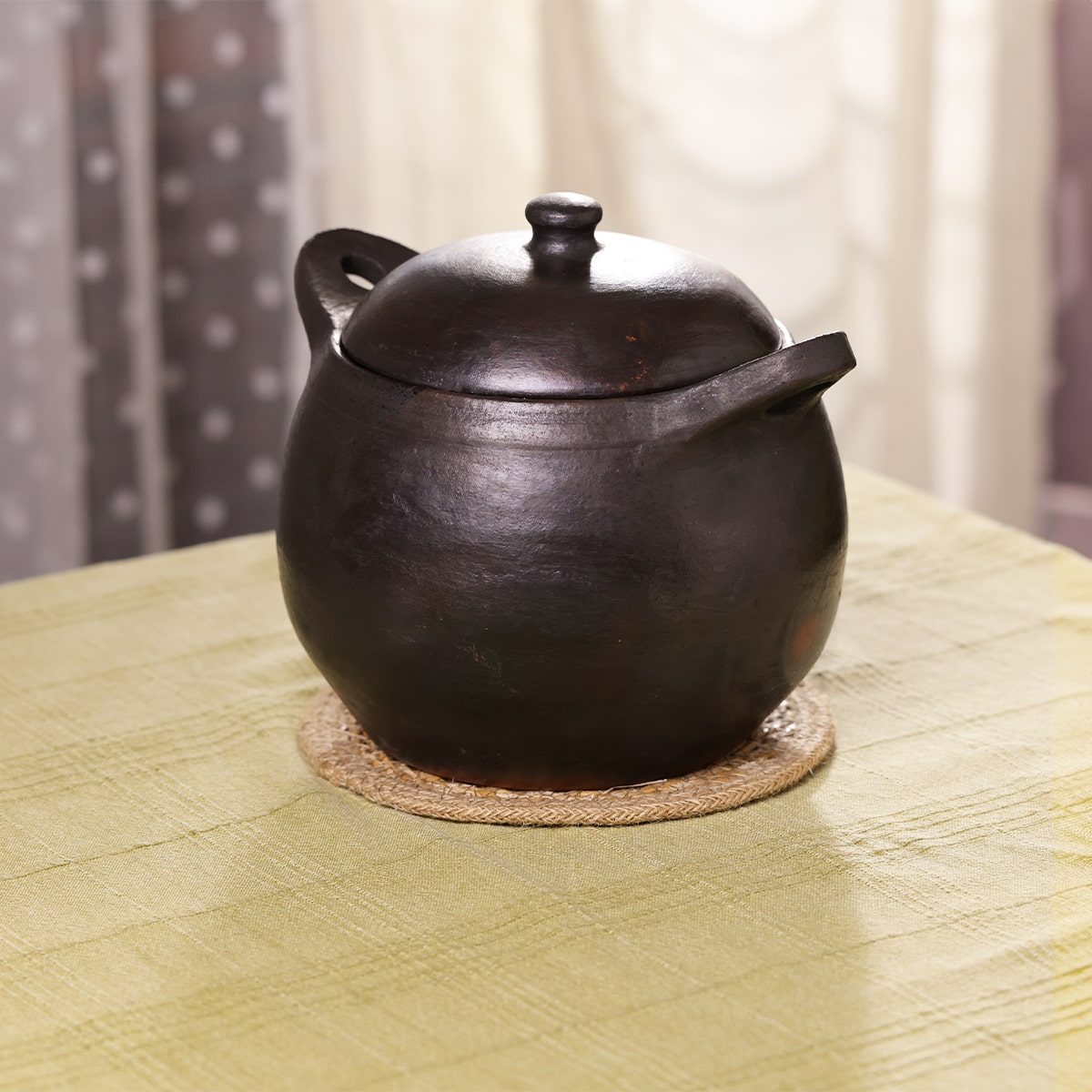
Kudukka Terracotta Pot with Lid (2 Litres)
$22.00
$25.00
Versatile flameware pots that will steam rice, simmer soup, slow cook dishes, or make your favorite curry. Clayware adds depth to every recipe. Practical to work with due to the uniquely designed handles and fitting lid. The black tone of the product is achieved through processing in the kiln. It is a blackening process done on the natural terracotta coloured product.
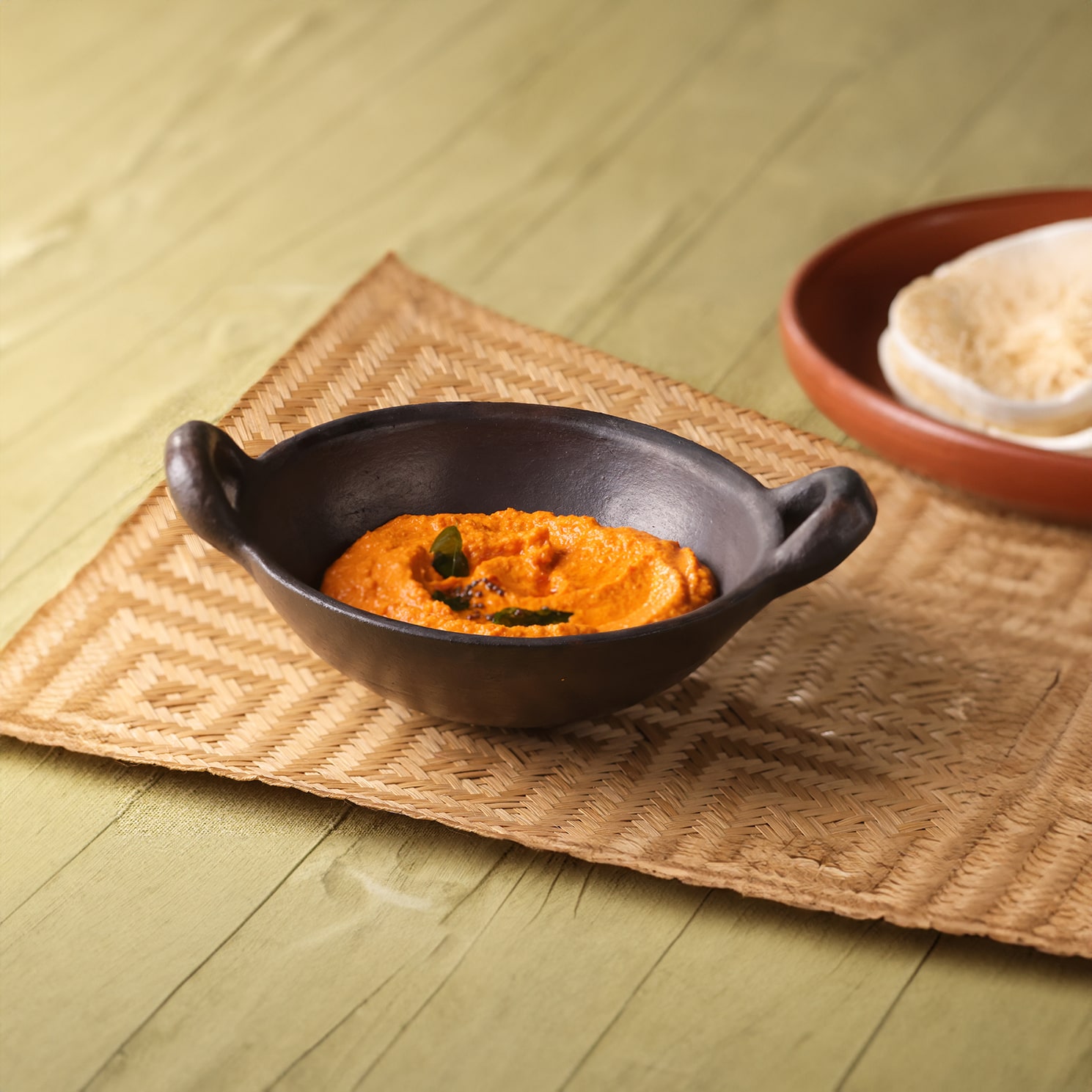
Kunhichatti - Seasoning and Serving Pot (400 ml)
$11.00
$14.00
A handy pot to prepare the seasoning for your curries, chutneys,... and take it to your dining table. Clay pots add that unique character to your seasoning
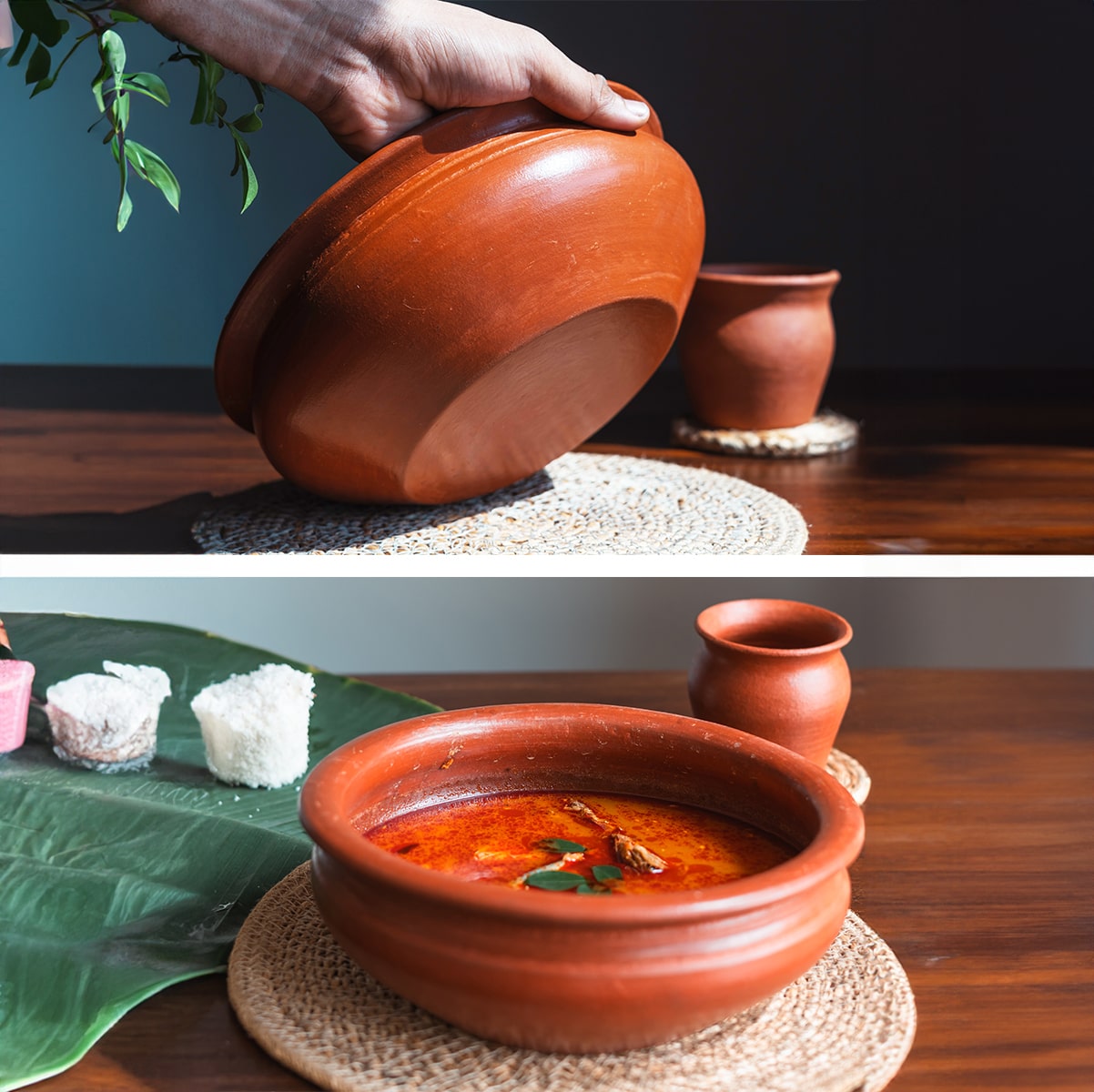
Naveena Flat Bottom Curry Chatti for Electric Stoves (1.5 litre)
$16.00
$20.00
The traditional cooking vessel of Kerala with a modern twist. This vessel has a flat bottom for your cooking on electric flat surface stoves Generally used to cook fish. But, the vessel can be used to cook any curry Our potters have put in that extra effort to polish it with special clay, it can be taken from stove to table. A unique cook and serve ware
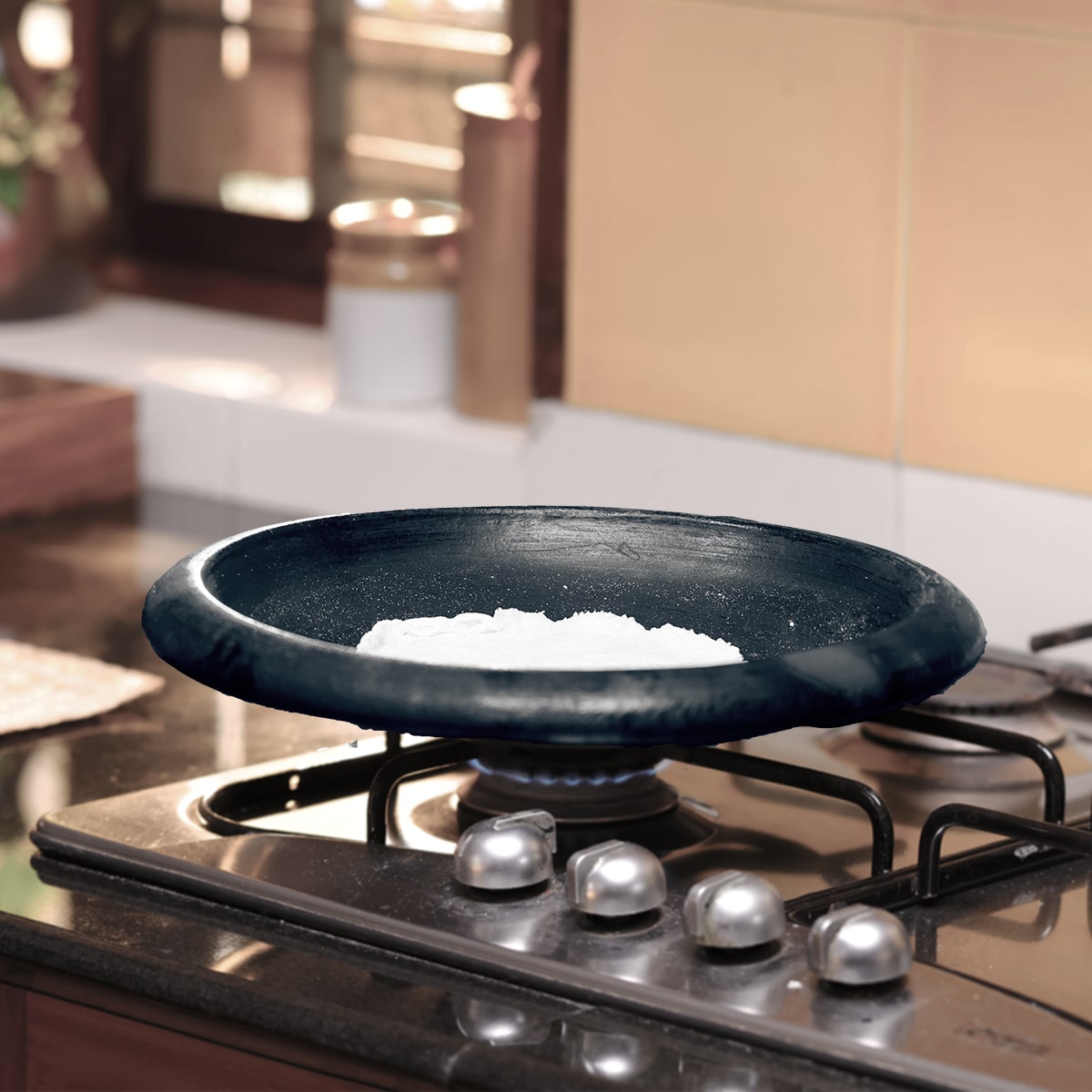
Pathirichatti - Terracotta Pan (25 cm dia)
$16.00
$20.00
Make those fluffy rice breads the traditional way in this Pathiri Chatti This traditional pan used for ages to cook rice breads, is a multi-purpose pan, which can be used for frying, as well as sautéing dishes The beautiful black toned pan can be taken to the dining table to serve too. The black tone of the product is achieved through processing in the kiln. It is a blackening process done on the natural terracotta coloured product.
Showing all 6 results
Related products
View all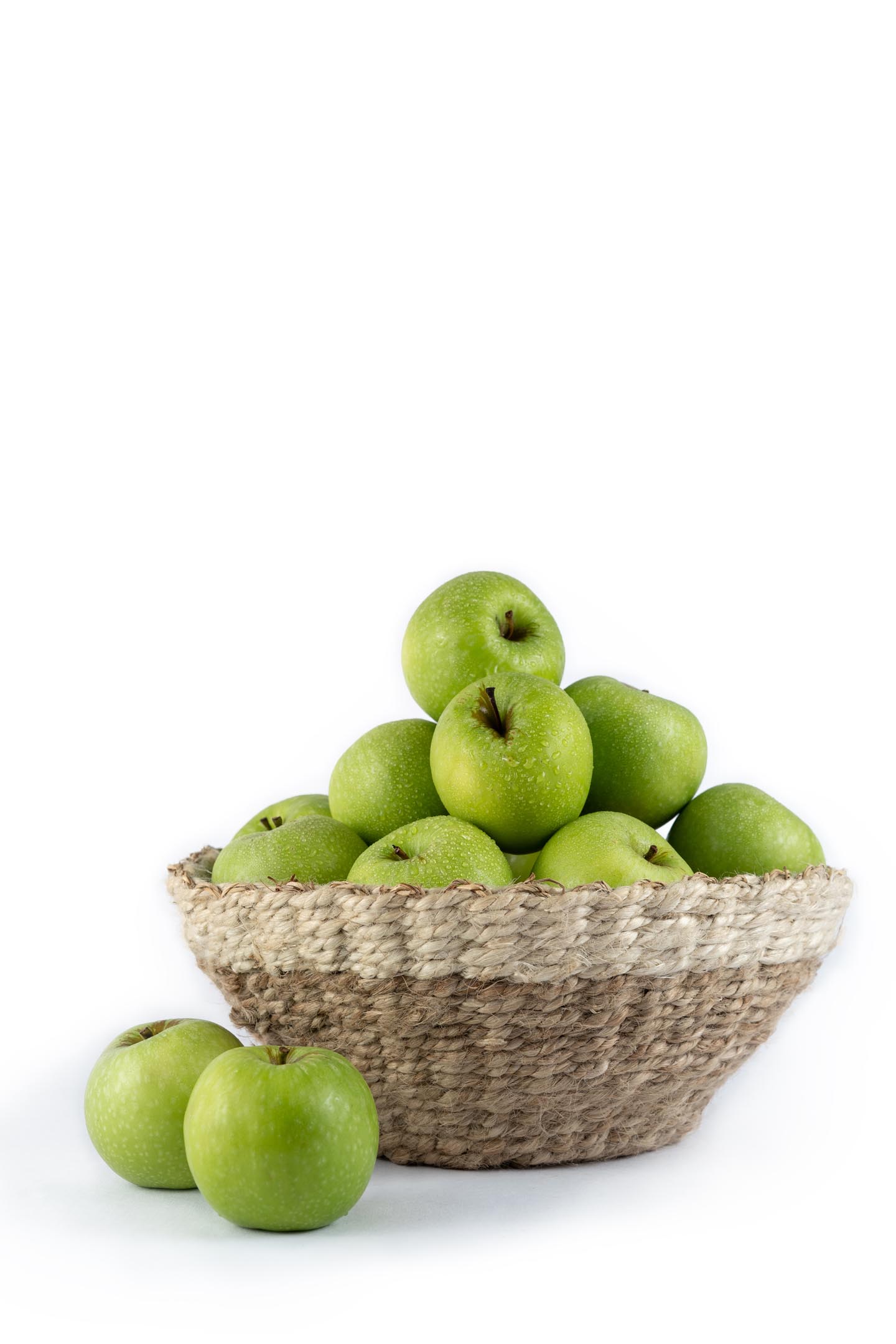
Chanam Fruit Basket
$700
$700
Jute is the material to go for if you are looking for a soft and durable natural material for baskets and bags. Here is a piece crafted by our artisans from Alleppey district in Kerala.
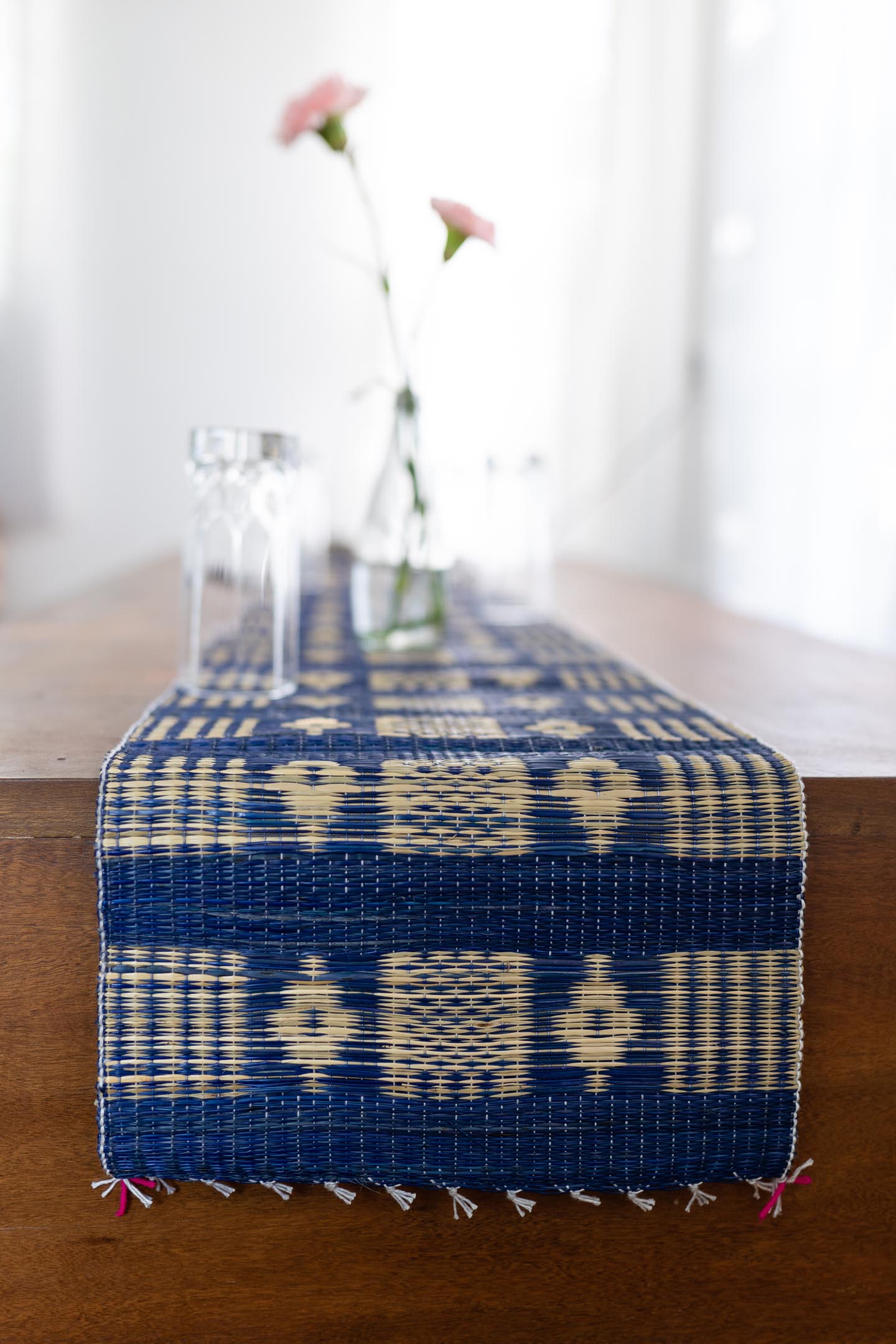
Neelam Runner
$1800
$1800
Adorn your dining table with this Elevating Blue Table Runner, made of cora grass starnds. Apart from serving as a decor, it protects your table from spills and damage that can be caused by food, liquids or even dripping candle wax. You may pair it with other crafts from Graamyam to complement all things nice, sweet and spicy, served on your dinner table. Story of Cora Grass and Mat weaving: Cora Grass is found along river banks and in marshy lands. It can grow up to a height of two meters. Family members of mat weavers collect these cora grass and bring it for processing. They cut each grass stem into four strands and remove the soft material at the centre. Before further processing, the grass is dried under the sun, till it develops a beige colour naturally. The grass is then dyed using different colouring materials and processes to match artists imagination. Sometimes, the colouring process takes days, depending on the shade of colour desired. The handcrafted mats are woven using hand operated looms. A set of white yarns as the warp (length) and thin strands of cora grass as weft (width), are woven on a loom hand-operated by weavers. These looms do not use electricity. Human handling lends the mat a unique feel and more value. The resultant mat is softer, more durable and much more comfortable than machine-made mats. The cora grass strands are compacted by hand by the weavers, ensuring sturdiness to the mat. The art of hand weaving is labour intensive and takes a longer time. But, the beauty and quality it adds to the mat is priceless. Choosing handwoven mats supports the rich weaving heritage of Killimangalam and lets the weavers carry on the precious art-form to the future generations as well.
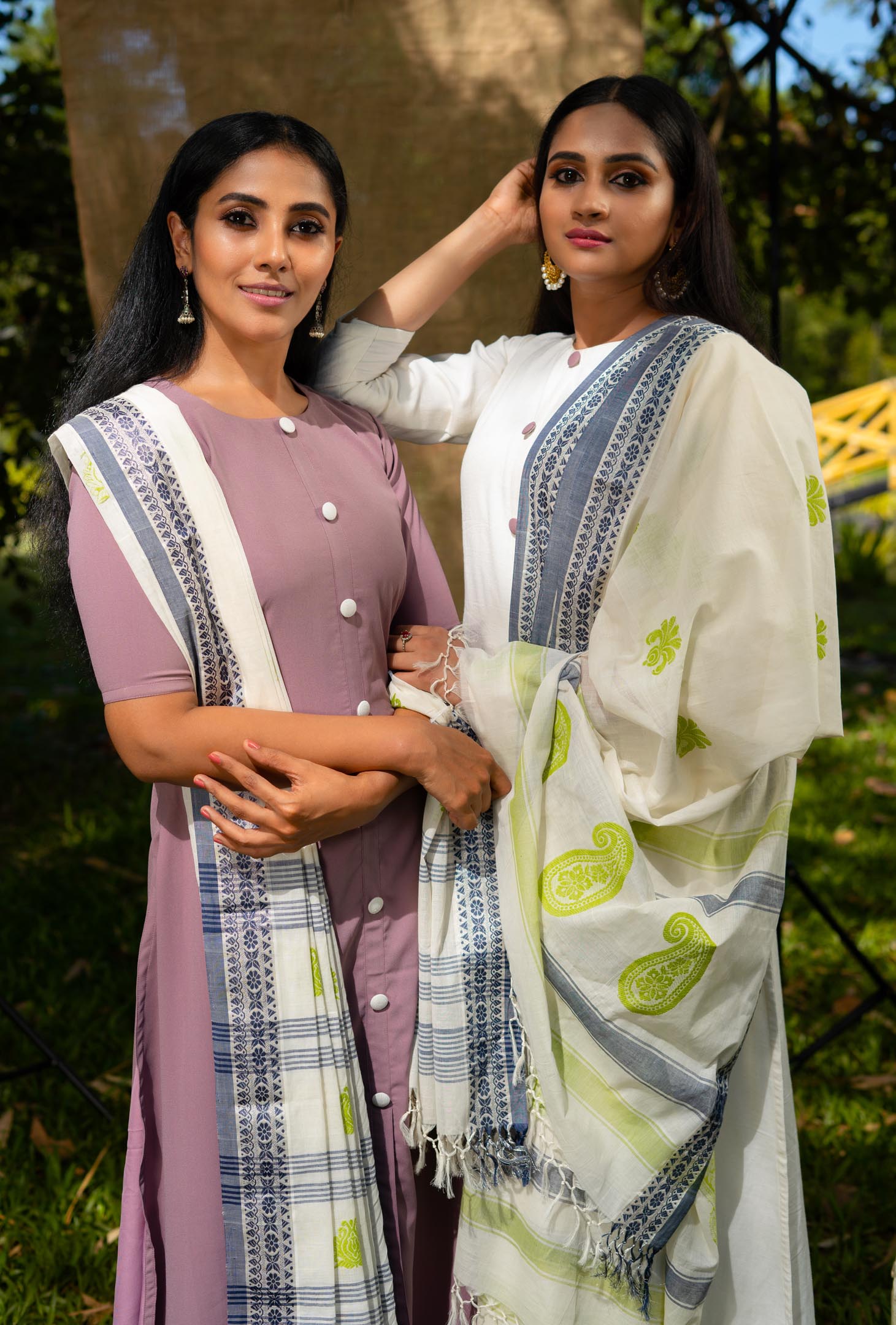
Saarika Dupatta
$2250
$2250
On a visit to the banks of the river Nila, we saw a group of parrots flying over, across the river to Kuthampully. That sight was mesmerising! We couldn't resist, but to attempt to ingrain that colour into our Dupatta, just for you! Inspired by the sights around the weavers village, we have added the mango design in green on the Dupatta. We are celebrating the nature around the weavers village through this "Saarika" series. Story of Weaving: The handloom fabric is a type of fabric that is woven using hand operated looms. Two sets of interlacing yarns, the warp (length) and weft (width), are woven on a loom hand-operated by weavers. These looms do not use electricity. Human handling lends the fabrics a unique feel and renders the fabrics more value. The resultant fabric is softer, more durable and much more comfortable than machine-made fabrics. Handloom cotton is more breathable and thus feels lighter in summers and provides more insulation in winters. The dyeing process also becomes easier for handloom cotton as the colour penetration is substantially more. Hues are absorbed better thus look resplendent on handloom cotton. The art of hand weaving is labour intensive and takes a longer time. But, the beauty it adds to the fabric is priceless. Choosing handloom cotton supports the rich weaving heritage of India and lets the weavers carry on the precious art-form to the future generations as well.
